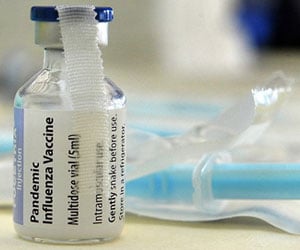New study sheds light on why newborns appear to be so prone to getting sick with viruses—they are born without one of the key proteins needed to protect them.

To make this discovery, scientists compared cells from the cord blood of newborns with the same type of blood cells from adults. The cells from newborns did not contain the protein TLR3, which was present in adult cells. These cells rid the body of viral-infected cells, ultimately eliminating viral infections. When researchers treated both cell groups with a synthetic component mimicking a viral presence, the adult immune cells reacted by secreting substances involved in immune reaction against viruses (interferon-gamma) and killed cells infected with virus, while cells from newborns could not do this or were impaired in performing this function.
"This study adds to the growing body of research stemming from the Nobel-winning discovery in 2011 on how the immune system recognizes microbes by shedding light on how these pathways develop over time after birth," said John Wherry, Ph.D., Deputy Editor of the Journal of Leukocyte Biology. "This report is particularly important - as any new parent can attest, infants are particularly susceptible to infections and understanding which pathways are not yet functional could lead to novel therapies."
Source-Eurekalert









